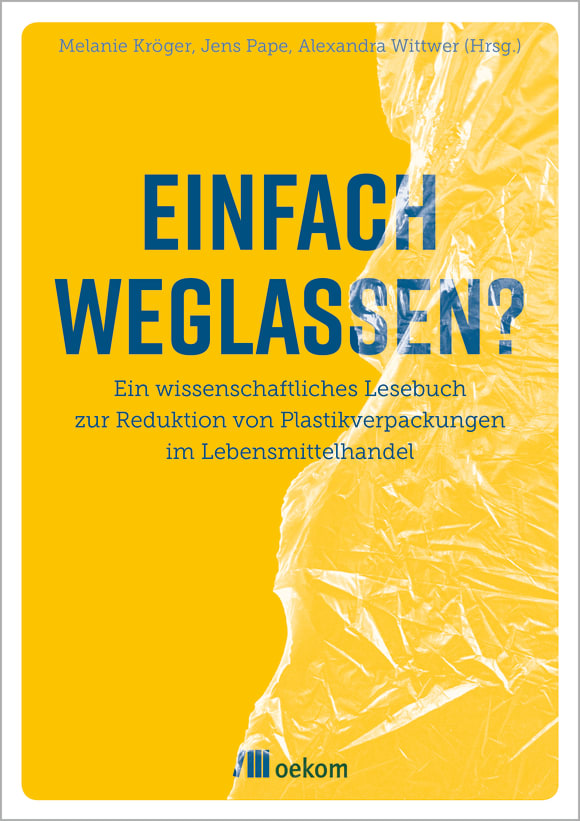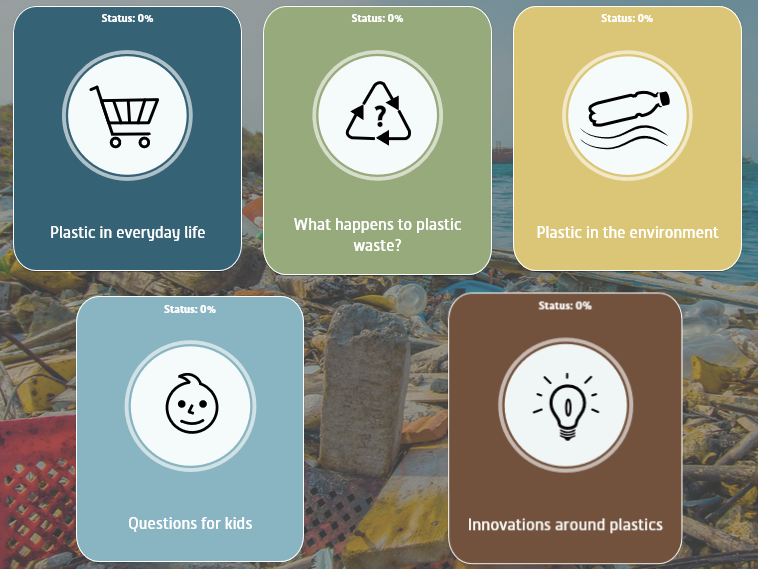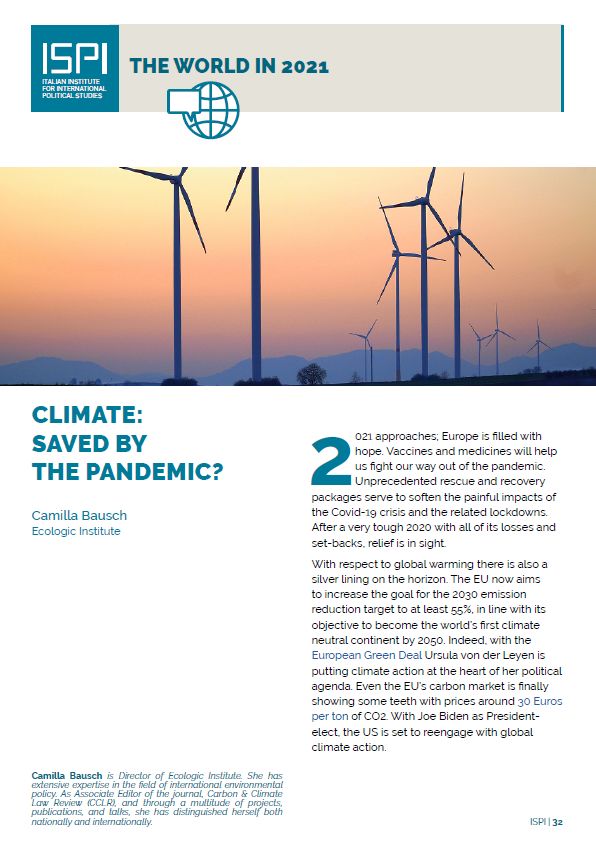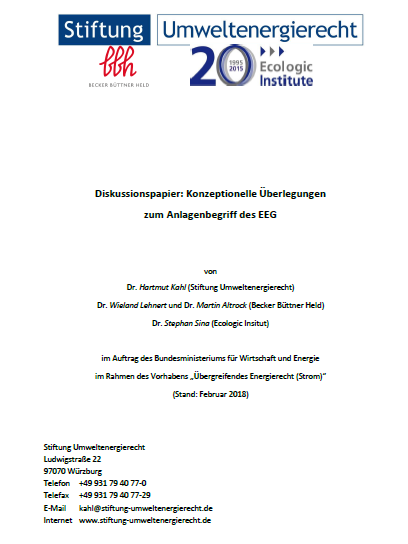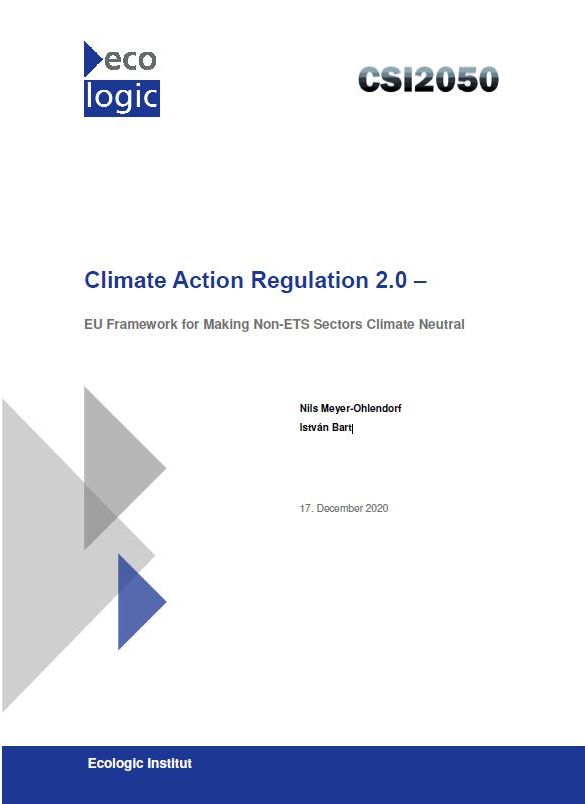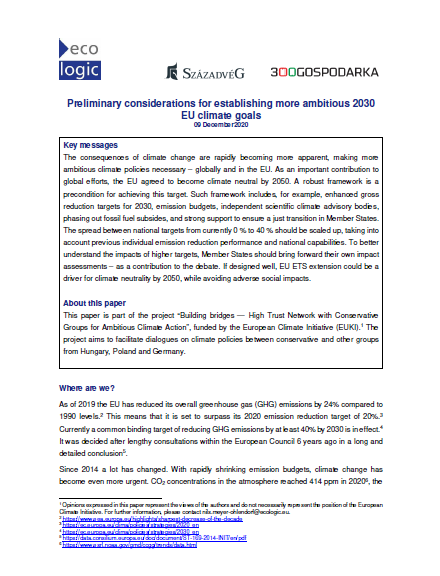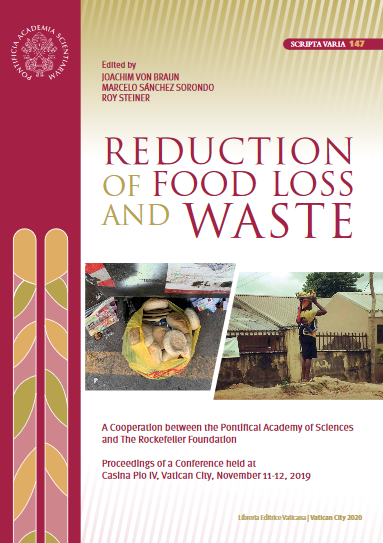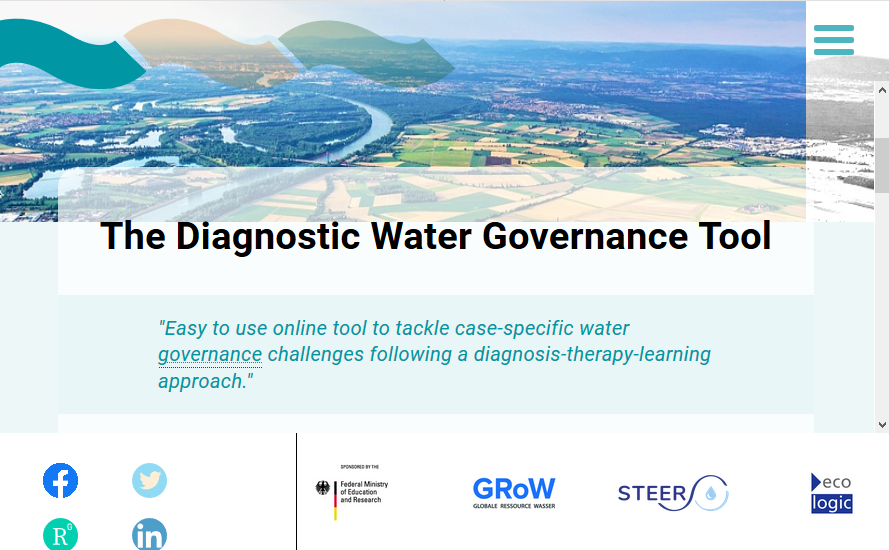Publication:Book Section
Publication:Web Application
Publication:Article
Climate: Saved by the pandemic?
Dr. Camilla Bausch's publication in ISPI Dossier "The World in 2021"
Year
Read morePublication:Document
Project
Publication:Document
Climate Action Regulation 2.0
EU Framework for Making Non-ETS Sectors Climate Neutral
Year
Read morePublication:Document
Publication:Book Section
Publication:Book
Publication:Article
Germany, Multilateralism and the Climate Crisis
How cooperation can strengthen climate policy
Year
Read morePresentation:Speech
Publication:Book
Publication:Book
Publication:Web Application
